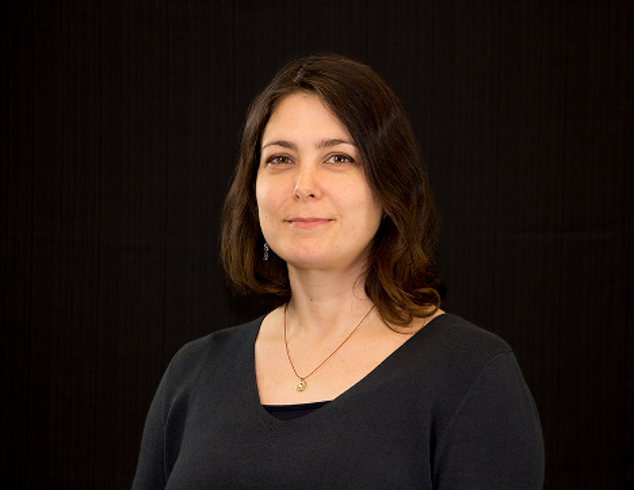
Symposium Home | Program | Speakers | Spotlights | Getting Here | Register
Susan Hinely | Victoria Pilato | Christian Marc Schmidt | Jamie Sommer | Dhruti Thakar
Bio: Victoria Pilato

Victoria Pilato is Stony Brook University’s digital projects librarian. As the digital projects librarian, one of her main tasks include helping to build digital collections for University libraries. Usually, these digital collections are made from material that the library itself wants to digitize and make available to the public or special collections where the University archivist sees collections that are being requested a lot. Additionally, she has a team that helps her figure out what actually gets digitized and made into a collection. She works with many student assistants that have helped her with digitizing.
Victoria describes the process of digitizing to be “like a puzzle,” where there are many pieces to the whole, and each member on her team has an important role in putting those pieces together. In many ways, working with different departments within the library is also like a puzzle piece, because they have to piece their strengths together in order to build an entire collection. Victoria is part of each digital project from the beginning to the end, making sure that everything is being managed and people are meeting the deadlines. Besides her project coming from in-house, Victoria also works with people outside of the libraries, who propose a digital project, such as Professor Christoff and her Bhungroo Irrigation Technology project. In addition to these tasks, Victoria teaches information literacy classes, is the liaison to the Philosophy and Religious Studies Department, works the reference chat on the library website, and does volunteer work outside of the library.
As the liaison, she connects the Philosophy and Religious Studies departments to the library. She has a counterpart in the Philosophy Department who reaches out to her often about the resources needed for teaching, as well as for their own research. Additionally, she helps to connect Ph.D. students in this department with resources for their current research and teaching for each semester. Her role as a liaison is more consulting based, where she advises faculty and students about research. Victoria notes that for the most part, philosophy prefers print material to electronic books, so she constantly has to access the collection in the stacks and make room for new printed material.
Victoria and I talked about the various roles the library plays in digitizing projects, as well as in providing access to open educational resources (OER). First, she explained that the library plays a crucial leadership role for users who benefit from OER for teaching and for research, and especially during this pandemic, Victoria thinks that the library has proven to be worthy to the academic community. It has also proven how important the library is to students who cannot afford to buy necessary books for their classes. OER is not a big part of her job, but during this pandemic, she says she is trying to help in areas she may not normally cover. As education has been moved to operate online, Victoria thinks that it is important to be knowledgeable about copyright, and not only supplying faculty and students with information about how they can do online teaching and learning right now, but also promoting OER for their online classes.
Adding to this discussion, Victoria pointed to the digital divide that still exists between people who are able to access the internet, and people who are unable to do so. While digital services allow research to happen on a larger scale, we have to think about smaller countries that might not be getting as much recognition for their research as a developed country such as the United States. However, overall, Victoria thinks that digital services are a benefit to not only the Stony Brook University community, but to anyone who can access the public material.
Victoria has worked with Professor Christoff on three oral history projects, including the Bhungroo Irrigation Technology project for the “Meeting the Farmers” symposium. Victoria describes oral history project to have “a learning curve, because there is a lot to know about oral history, especially regarding people’s privacy.” This is a big concern because the people who are interviewed must give their consent to release their story to the public, and also must understand from the very beginning what the project is about. Sometimes, if consent is not given, then their history can still be part of the project, but it will only be available to certain people. Currently, Victoria is nearly finished with the digitization process for the Bhungroo project. It has required a lot of organization, but ultimately, she believes that each project has taught her so many new things. Victoria tries to document everything she learns so that she knows how to better ask about what she needs the next time someone requests a project to be done. She finds so much interest in every project, and just to be able to work with the material that she is the reason why she enjoys being a digital projects librarian.
Biography by: Leio Koga

